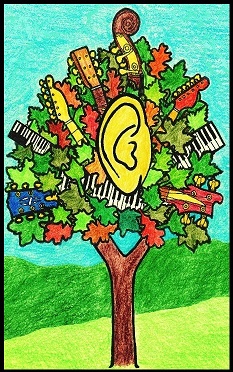 Many teachers live their lives in constant anxiety over what parents, owners and other teachers think about them and their abilities. They’re understandably sensitive to the charge they aren’t doing their job, or that they’re not good at their job. In their defense, it isn’t always easy to measure their performance objectively.
Many teachers live their lives in constant anxiety over what parents, owners and other teachers think about them and their abilities. They’re understandably sensitive to the charge they aren’t doing their job, or that they’re not good at their job. In their defense, it isn’t always easy to measure their performance objectively.
This causes some teachers to take a “cover your back” attitude toward their job. “I taught the material, so it’s the student’s fault if they don’t succeed.” The attitude that “it’s the student’s fault” prevents teachers from seeing problems from the student’s perspective. Besides, it’s less work.
Teachers often over-correct. They justify it by saying, “You’re not supposed to practice your mistakes.” They think it’s their job to stop you each time you make a mistake, so that you know they see all of your mistakes. This is really annoying for students, who just keep repeating “Okay, I know,” and waiting for the teacher to shut up.
Another reason for over-correcting is music teachers often can’t see when they’re winning because of their narrow focus on right or wrong, and an unwillingness to allow students to develop their core skills organically. Sometimes it’s best to sit back for a minute and let students work things out for themselves. Teachers should step in when their students are really stuck. But they stop their students from experimenting and figuring things out, just because they don’t understand, or just don’t like, what the student is doing.
Sometimes, it’s appropriate to correct every mistake. If you’re preparing to work with an orchestra or symphonic band, then minor details are important. There’s a strict etiquette in orchestras and symphonic bands that starts with always following the conductor.
Teachers often wont tell you when you’re doing something right. “If it ain’t broke, don’t fix it.”It’s important for students to get useful feedback when they’re doing things correctly. This has nothing to do with using praise as positive reinforcement. Rather, it’s part of bringing the unconscious into the light.
There are many tacit, unspoken assumptions in the teacher/student relationship. There’s a tacit assumption that music lessons have an end goal. But the magic day when you can say, “I made it,” whatever “it” is, usually never arrives. In real life, the student/teacher relationship usually ends when the student decides that he or she has had enough of whatever kind of fun their teacher is dishing out every week.
Some students insist on charting their own course when it comes to learning music. For instance, some students approach music as a series of questions. As a teacher, I will try to answer any direct question – as long as that question has an answer.
A beginning guitar student, a teenager who had bought a book of shred guitar tabs that was completely over his head, wanted me to explain tabs to him. I recommended we start with easier songs, but instead he wanted me to help him figure out where the notes in the tabs were on the guitar neck. Over the next few months, he diligently memorized the note orders of several complicated solos.
At first, he didn’t have any technique. His fingerings made no sense at all. Most teachers would have shut him down, and made him do something else, but he was studying the tabs in detail. He didn’t make record progress, but he didn’t flail in the dark either. He just kept playing the notes from the tabs in order, trying different fingerings. Over about four months, I helped him straighten out his technique, though he figured out most of it on his own. He eventually learned to play a lot of complicated guitar parts. He’s playing and teaching today.
This is a common scenario, and it goes to show that overreacting to students’ mistakes is counterproductive in the long run. Everybody I know who got good at playing music started out sounding awful, and ended up getting better over time. The road to great technique is paved with terrible technique. “Doing the same thing over and over and expecting a different result,” is the definition of both “insanity,” and “music practice.”
As a teacher, sometimes you have to put your reservations aside and let your students figure things out on their own terms. Sometimes you have to follow the student’s path to your mutual goal.
© 2019, 2020 Greg Varhaug